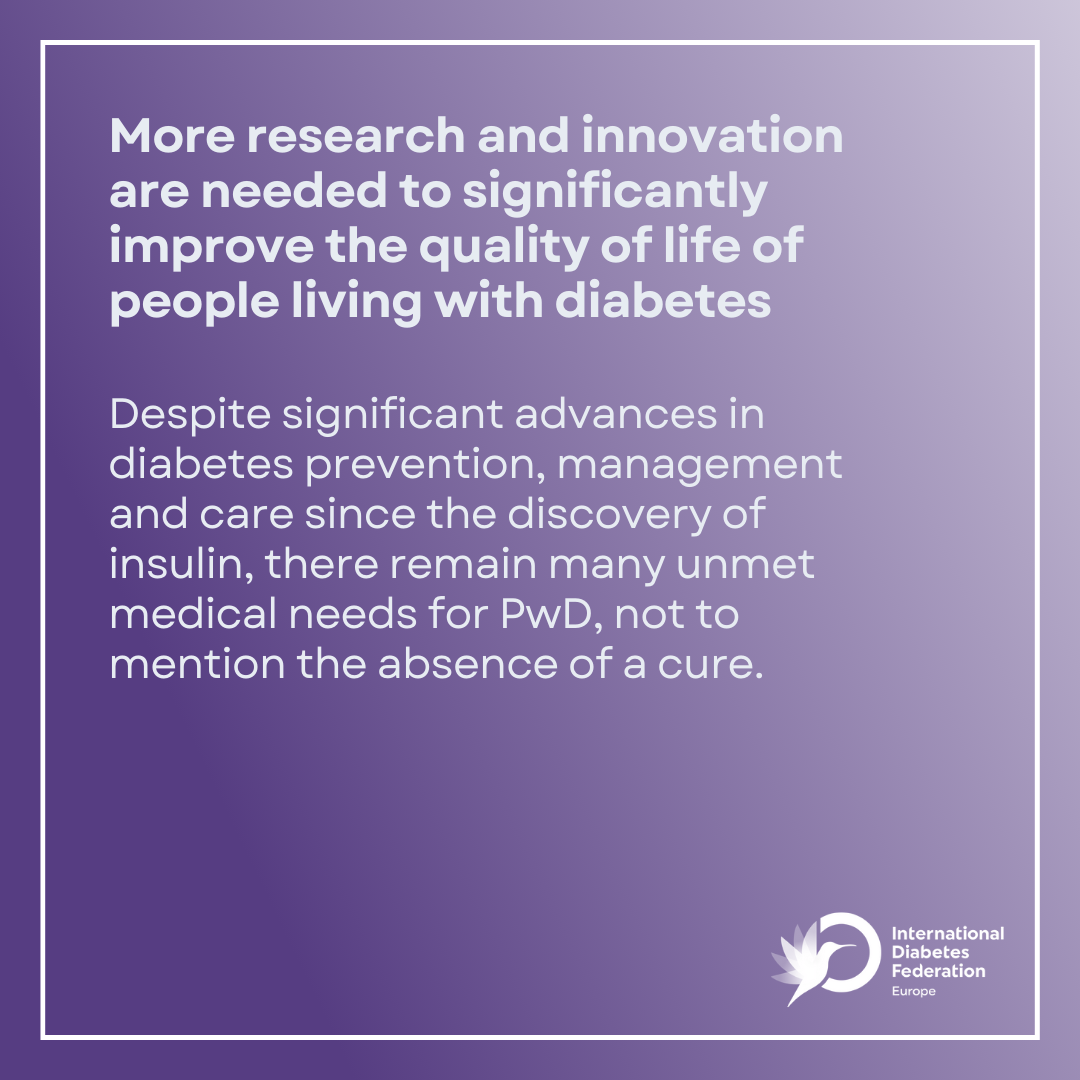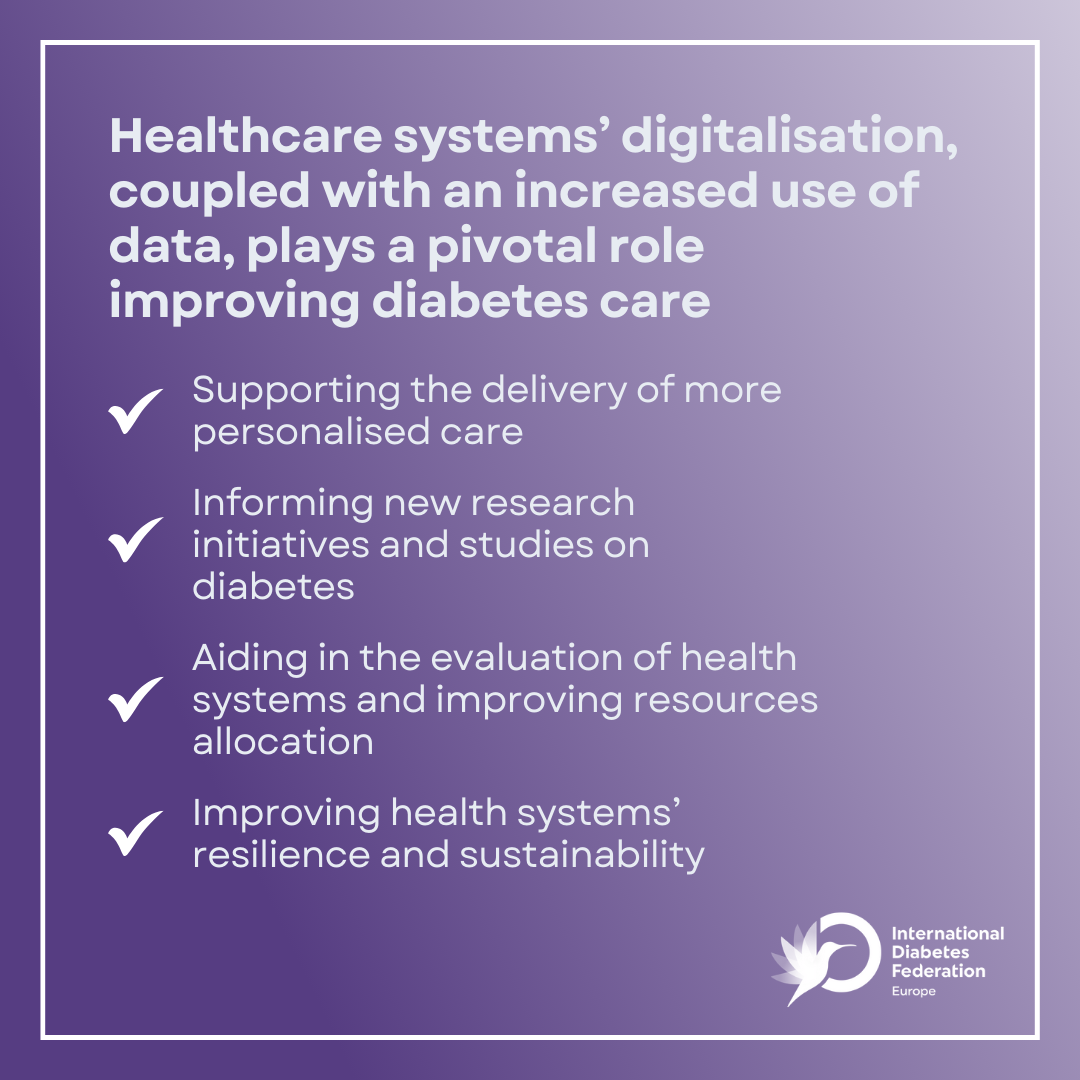Advancing research and innovation in diabetes: a century of progress and the road ahead
One hundred years ago, the discovery of insulin revolutionised diabetes care. Since then, an accelerating number of innovations has emerged, from new medicines, to devices, technologies and digital solutions that improve diabetes management and treatment and reduce the burden of the condition on people living with diabetes (PwD). These include, for example, novel approaches to the delivery of care supported by digital tools such as web portals, apps, telemedicine, digital education services and digital therapeutics that can enhance diabetes management, interactions with HCPs, access to knowledge and information, peer support and PwD empowerment.
However, despite these significant advances, unmet medical needs remain. Diabetes prevalence continues to rise, one in two PwD do not meet their blood glucose targets and many of them develop diabetes-related complications. Required advances include those supporting more effective and targeted diabetes treatment and prevention as well as those enabling an improvement in the quality of life and health outcomes that existing solutions do not currently offer, and ultimately the possibility of a cure.
Some of the promising research areas span cell replacement therapies that could restore the body’s ability to produce insulin. Others include new sensors and long-term implantable devices for diabetes management and new insulin delivery mechanisms that can ease self-management and its burden for PwD.
More research and investments are also needed to improve the identification of those at risk of developing diabetes and its complications, address the side effects of existing treatment, optimise interventions aimed at preventing both type 1 and type 2 diabetes, address the interplay of diabetes with other conditions such as cardiovascular diseases and kidney disease and improve the understanding of the interactions between different medicines. Ultimately, extensive research is still needed to find a cure for diabetes. In this respect, a major recent breakthrough is a new drug that can delay the onset of type 1 diabetes in some individuals by an average of two years.
The transformative role of healthcare systems’ digitalisation in diabetes care
The digitalisation of healthcare systems, coupled with an increased use of data, new technologies, data analytics and AI, plays an essential role in the potential improvement in diabetes prevention, management and care.
Digitalisation can support the delivery of more personalised care by enabling the collection and analysis of data that advance our knowledge of diabetes and can be used to tailor treatments to PwD’s needs and preferences. It supports remote monitoring and self-management and facilitates shared decision-making between HCPs and PwD. It can also aid in the evaluation of health systems’ performance and improve the effective allocation of resources by leveraging data-driven insights.
Unlocking the full potential of health systems’ digitalisation requires the setup of frameworks that can support the use of novel tools and practices and scale up their adoption. In this context, initiatives such as the European Health Data Space can create a harmonised EU-wide data framework that could enable major breakthroughs in prevention and care while decreasing the cost of diabetes-related healthcare expenditure, freeing up health system resources and improving health systems resilience and sustainability.
In the lead up to World Diabetes Day, let’s raise awareness of the need to accelerate action on research and innovation to improve diabetes prevention, management and care and stimulate the digitalisation of healthcare systems. Together, United, Let’s Act on Diabetes.

